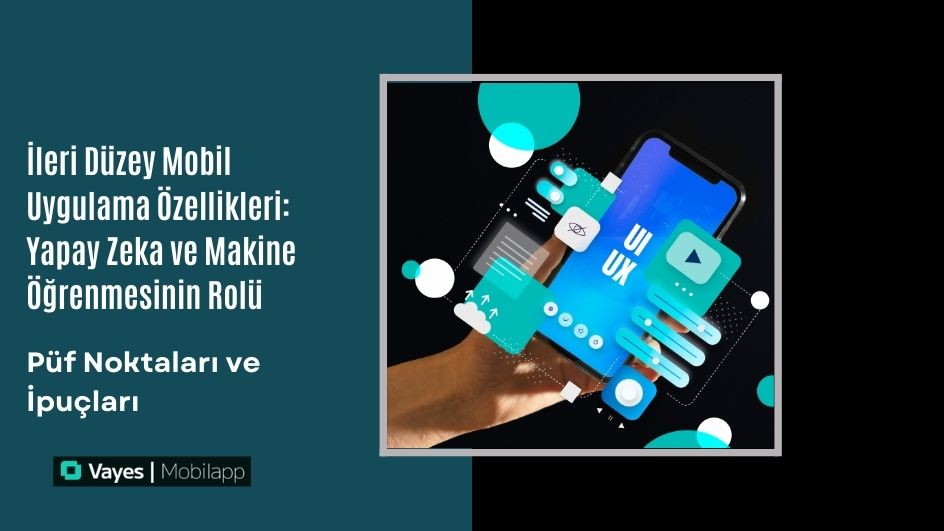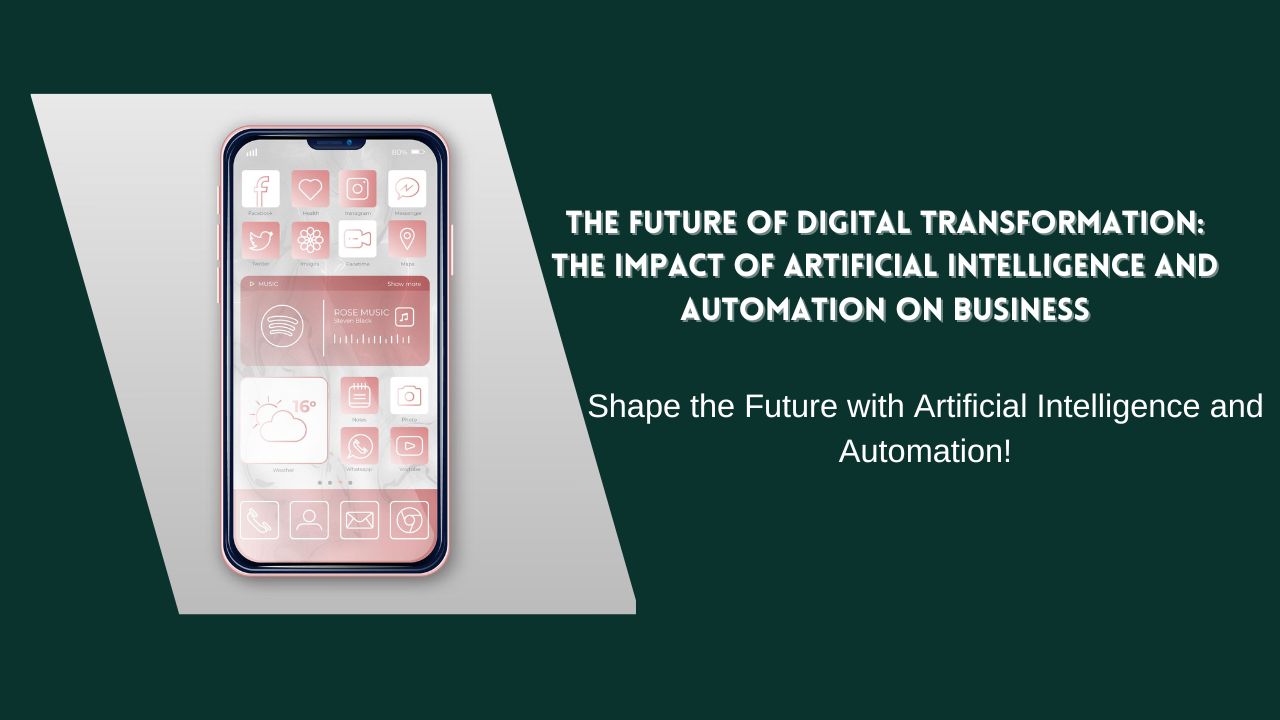Hello,
How Can We Help You?
Contact Form
Fill out the form and we will contact you as quickly as possible.
|

The world of mobile apps is rapidly evolving because users increasingly expect smarter and more personalized experiences. Artificial Intelligence (AI) and Machine Learning (ML) play a pivotal role in this development process. These technologies not only enhance app functionality but also assist in understanding user needs and delivering unique solutions.
Artificial intelligence and machine learning optimize processes such as data analysis, learning user habits, and predictive modeling. As a result, mobile apps become more efficient, user-focused, and innovative. Developers can integrate these technologies to add more flexibility and intelligence to their apps, thereby increasing their effectiveness.
Today, mobile apps have transcended being mere tools that perform basic functions. Artificial intelligence and machine learning transform mobile apps into "smart" platforms. Such innovative features enhance both user experience and app efficiency.

Artificial intelligence is a field developed to enable machines to acquire human-like thinking, understanding, and problem-solving abilities. In mobile apps, this technology analyzes user behavior to provide personalized content. For example, a music app suggests new songs based on a user’s past listening habits.
Machine learning, a subset of artificial intelligence, equips machines with the ability to learn from data and make more accurate predictions based on experience. In apps, it analyzes users’ past activities and behaviors to predict future preferences. This allows apps to continuously improve and offer better services to users.
Integrating these technologies into mobile apps provides significant advantages to app owners. Users not only receive data-driven solutions but also benefit from apps that become more accurate and effective over time. Artificial intelligence and machine learning make mobile apps not just functional but also "smart."
Artificial intelligence is highly effective in creating personalized experiences in mobile apps. By analyzing users’ past behaviors, AI delivers content tailored to their interests and preferences. For instance, a shopping app makes recommendations based on previous purchases, personalizing the shopping experience.
Personalization isn’t limited to shopping; music, video, and social media apps adopt a similar approach. AI can create playlists or suggest videos to watch based on user interests. Such recommendations keep users engaged with the app, as every experience feels personalized and unique.
Moreover, mobile apps can respond instantly to users’ dynamic behaviors. For example, a fitness app examines past workout data to offer a tailored training program. AI tracks user progress, consistently providing better suggestions.
Smart assistants and chatbots are among the most common examples of interactive features in mobile apps. Powered by artificial intelligence, these technologies provide instant feedback and respond to user needs. For example, a food delivery app suggests menu items based on user preferences.
While chatbots are typically used for text-based interactions, voice commands power smart assistants, which are increasingly popular today. Users can navigate apps, shop, or perform various tasks using voice commands. Such interactions make mobile apps more user-friendly and accessible.
Chatbots also play a significant role in customer service. Users can quickly get answers to common questions or resolve issues through chatbots, enhancing app interactivity and significantly improving user satisfaction.
Machine learning offers the capacity for predictive analysis in mobile apps. By analyzing users’ past behaviors and interactions, apps can forecast future needs. For instance, a fitness app analyzes previous workouts to recommend the most suitable exercise programs.
Predictive analysis isn’t just for personalization; it’s also used for in-app performance improvements. Apps can predict peak traffic times, popular features, or frequent errors. This data helps formulate strategies to enhance app performance.
Data-driven decision making also offers developers a significant advantage. By analyzing user data, developers can identify areas for improvement and make strategic decisions, ensuring the app’s long-term success.
Image recognition brings significant innovation to mobile apps. Artificial intelligence analyzes images to offer users new experiences. For example, augmented reality (AR) apps recognize surrounding objects and provide interactive visual content.
The use of augmented reality in mobile apps is particularly widespread in the retail sector. Users can virtually try products, blending the real world with virtual elements to enhance their shopping experience. AR also holds great potential in education and healthcare, offering users more interactive learning experiences through apps.
Artificial intelligence enhances AR experiences with image recognition, analyzing users’ surroundings to deliver tailored content and create an interactive environment. This feature makes a significant difference, especially in entertainment and educational apps.
Machine learning is a vital tool for optimizing mobile app performance. Apps analyze user behavior to determine which features are frequently used and which are less popular. This information helps developers optimize apps and make them more efficient.
Analyzing in-app data traffic is another advantage provided by machine learning. Identifying peak user access times or heavily used functions enables developers to deliver a more efficient user experience. Additionally, machine learning detects performance delays, allowing for immediate solutions.
Furthermore, machine learning ensures apps use resources more efficiently. By optimizing energy consumption and memory, it enables users to enjoy uninterrupted experiences for longer periods. This boosts user satisfaction while maximizing app performance.
Mobile app security is critical for protecting users’ personal data. Artificial intelligence and machine learning are used to detect vulnerabilities and prevent attacks in apps. These technologies identify abnormal behavior within the app, adopting a proactive approach against potential threats.
AI algorithms continuously analyze data to ensure user safety. For example, passwords and authentication processes used in mobile apps are made more secure with AI. Machine learning can detect unusual user activities, triggering real-time alert systems.
Additionally, artificial intelligence and machine learning optimize data encryption and secure transaction protocols. This not only protects in-app data but also provides extra measures to ensure user safety, allowing for a more secure mobile experience.
The integration of artificial intelligence and machine learning into mobile apps offers developers significant opportunities. These technologies enhance app functionality, improve user experience, and ensure long-term success. Developers can use AI and ML to create smarter, more efficient, and user-friendly apps.
The integration process provides developers with specific tools and platforms. These tools enable rapid creation and integration of AI and ML models into apps. Additionally, developers can analyze user data more effectively with these technologies, delivering more tailored experiences.
In conclusion, integrating artificial intelligence and machine learning into mobile apps not only enhances user experience but also helps developers deliver more efficient and effective solutions. This integration offers significant advantages at every stage of the app development process.
Contact Form
Fill out the form and we will contact you as quickly as possible.
 Notification Center 00:00
Notification Center 00:00